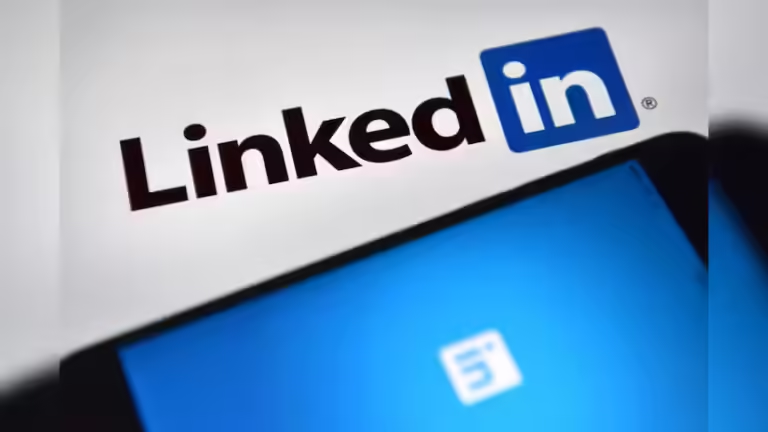Ireland’s Data Protection Commission (DPC) has imposed a significant fine of €310 million on LinkedIn, the social networking platform for professionals, over violations of European data privacy regulations. The investigation focused on how LinkedIn processed users’ personal data for targeted advertising and behavioural analysis, specifically regarding the lawfulness, transparency, and fairness of these practices under EU’s General Data Protection Regulation (GDPR).
Data Protection Regulation (GDPR).
This substantial fine underscores the EU’s commitment to strict data protection standards and highlights ongoing scrutiny of digital platforms that handle large volumes of user data. The ruling, issued after a comprehensive inquiry, includes additional orders for LinkedIn to adjust its data processing practices to comply with GDPR requirements.
LinkedIn’s C310 million penalty: Background of the investigation
The DPC, acting as the lead supervisory authority for LinkedIn within the EU, launched the investigation following a complaint from the French Data Protection Authority. As per reports, the inquiry examined LinkedIn’s use of personal data for two primary purposes: behavioural analysis and targeted advertising. These practices, involving data from users who created profiles on LinkedIn, raised questions about the transparency and consent surrounding LinkedIn’s data handling.
The complaint initiated a broader investigation by the DPC, which assessed whether LinkedIn’s approach to data processing aligned with GDPR’s stringent standards on user consent and data usage. According to GDPR regulations, personal data processing must adhere to strict rules ensuring that user consent is freely given, specific, informed, and unambiguous.
Key findings and DPC’s decision
The DPC’s decision, issued on October 22, was jointly signed by Data Protection Commissioners Dr. Des Hogan and Dale Sunderland. It concluded that LinkedIn’s data processing practices were not fully compliant with GDPR’s legal framework, particularly in terms of transparency and obtaining adequate user consent. The investigation found that LinkedIn’s consent mechanism did not meet GDPR standards, as the consent obtained was neither “freely given” nor sufficiently informed, specific, or unambiguous.
The DPC ruling includes several mandates:
C310 million fine: LinkedIn was fined C310 million, reflecting the seriousness of the violations.
Reprimand and compliance order: LinkedIn was reprimanded and ordered to bring its data processing practices into full compliance with GDPR requirements, focusing on transparency and lawful consent.
Deadline for compliance: LinkedIn has been given a deadline by the DPC to update its advertising practices to meet GDPR standards.
The decision, after its issuance in Ireland, was submitted to the European GDPR Cooperation Mechanism in July under Article 60 of GDPR, which allows other EU supervisory authorities to review and object to decisions. However, the DPC confirmed that no objections were raised by other EU/EEA supervisory bodies, indicating broad support for the ruling across the European regulatory landscape.
Statements from DPC and LinkedIn
Following the decision, Graham Doyle, Deputy Commissioner of the DPC, commented on the importance of maintaining lawful processing standards under GDPR. He emphasised that data processing without a proper legal basis violates a data subject’s fundamental rights to data protection and privacy, noting that such breaches are taken seriously under EU law.
The DPC released a statement acknowledging the cooperation of peer supervisory authorities in other EU countries, underscoring the collective commitment to enforce GDPR standards.
A spokesperson for LinkedIn responded to the DPC’s decision, noting, “Today, the Irish Data Protection Commission (IDPC) reached a final decision on claims from 2018 about some of our digital advertising efforts in the EU. While we believe we have been in compliance with the General Data Protection Regulation (GDPR), we are working to ensure our ad practices meet this decision by the IDPC’s deadline.” LinkedIn expressed its intent to adapt its practices to comply with the DPC’s findings, though
It maintains that it had previously attempted to align with GDPR standards.
GDPR compliance and consent standards
Under GDPR, companies operating within the EU are required to adhere to stringent consent requirements when processing user data. Consent must be:
Freely given: Users should not be pressured or misled into granting consent.
Informed and specific: Companies must provide clear information on how user data will be used.
Unambiguous: Consent must be expressed through affirmative actions, such as clicking an “Accept” button, ensuring there is no room for misinterpretation.
The DPC found LinkedIn’s consent mechanisms lacking in these aspects, which led to the substantial fine and compliance orders. The ruling highlights that companies must ensure users are fully informed and willingly provide consent before their data is used for targeted advertising or behavioural analysis.
Implications for LinkedIn and other tech companies
This decision against LinkedIn serves as a reminder to digital platforms about the EU’s rigorous approach to data protection. With the hefty fine and compliance orders, LinkedIn and other tech companies face increased pressure to prioritise transparent and legally compliant data practices. The case also underscores the EU’s commitment to protecting data privacy, with the DPC actively investigating and penalising companies that fail to comply with GDPR.
For LinkedIn, compliance with the DPC’s orders may necessitate substantial changes to its advertising and data analysis practices in the EU. The ruling may also impact LinkedIn’s overall approach to user data worldwide, as the company adapts its processes to avoid similar issues in other regions.


